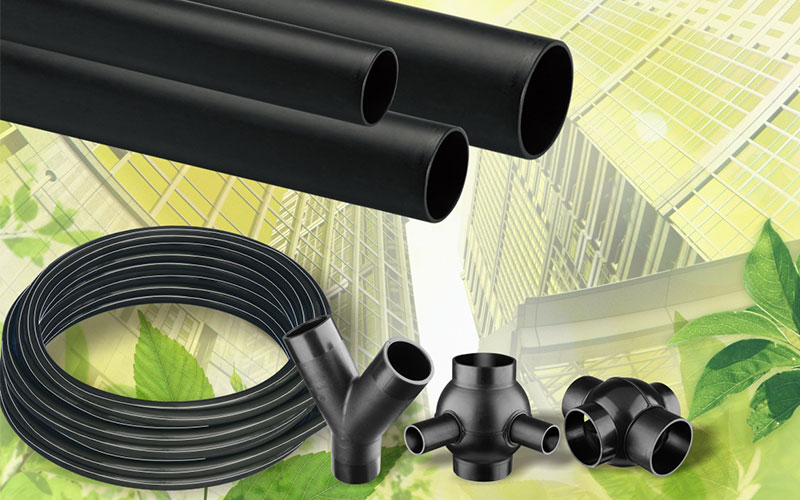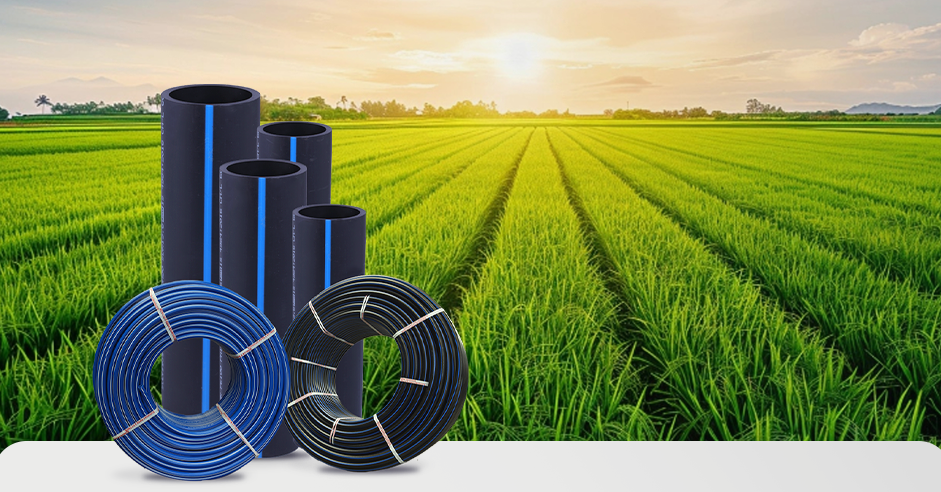Where Contractors Can Get Midland TX HDPE Pipe Fittings in Stock for On-Demand Needs
Comprehending the Trick Perks of HDPE Pipeline for Water and Wastewater Management
Using HDPE pipeline in water and wastewater management presents countless advantages that warrant consideration. Its extraordinary longevity and lengthy lifespan make it a favored choice for numerous projects. In addition, the product's resistance to rust and chemical damage boosts its integrity in different atmospheres. Nevertheless, the benefits expand beyond just longevity and resistance. Exploring its cost-effectiveness and ecological effect reveals also a lot more compelling reasons for its prevalent fostering in contemporary framework
Exceptional Toughness and Long Life

HDPE pipeline attracts attention for its phenomenal toughness and durability, making it a preferred option in water monitoring systems. Constructed from high-density polyethylene, these pipes can stand up to significant pressure and anxiety, guaranteeing trustworthy efficiency over time. Their robust nature permits them to endure extreme ecological problems, including temperature level changes and dirt movements, which can trigger various other products to fail.
The life expectancy of HDPE pipelines frequently goes beyond half a century, providing an economical service for communities and sectors alike. Additionally, the material's lightweight residential properties simplify installation, minimizing labor prices and timeframes. This longevity lessens the requirement for regular repair work or replacements, further enhancing its economic allure.
In water monitoring applications, the dependability of HDPE pipes implies fewer interruptions and improved service continuity, making them integral to sustainable infrastructure growth. The mix of durability and durability solidifies HDPE's function as a cornerstone in effective water management remedies.

Resistance to Deterioration and Chemical Damages
While lots of materials catch corrosion and chemical damages in time, HDPE pipelines exhibit exceptional resistance, making them optimal for numerous water administration applications. This strength stems from the molecular framework of high-density polyethylene, which is inherently non-reactive and does not rust like steels or deteriorate from direct exposure to extreme chemicals. Consequently, HDPE is extremely reliable in environments with hostile substances, such as wastewater systems that may have acids, bases, and organic solvents.
In addition, HDPE pipes can hold up against environmental aspects such as dirt level of acidity and saline problems, better improving their viability for diverse applications (American Plastics HDPE Pipe for Oilfield). Their ability to preserve architectural integrity gradually reduces the threat of leakages and failures, which is important in making sure the safety and reliability of water circulation and wastewater administration systems. Consequently, the resistance to rust and chemical damage noticeably adds to the overall performance and durability of HDPE piping solutions
Cost-Effectiveness and Financial Benefits
When taking into consideration the financial ramifications of water administration systems, the cost-effectiveness of HDPE pipelines comes to be noticeable. These pipes offer reduced installation and maintenance prices contrasted to conventional products like steel or concrete. Their lightweight nature simplifies transportation and setup, leading to minimized labor expenditures. Additionally, HDPE pipes show a long life-span, frequently going beyond 50 years, why not find out more which converts to less replacements and lasting savings.
The resistance of HDPE to rust and chemical damage decreases the demand for costly repairs and substitutes. The pipes additionally support reliable water flow, lowering energy prices connected with pumping systems. By mitigating leakages and water loss, HDPE pipes add to substantial economic advantages for districts and industries alike. Overall, the first financial investment in HDPE piping can produce considerable financial returns over the life-span of the water monitoring system, making it a sensible choice for lasting facilities development.
Environmental Sustainability and Lowered Impact

Versatility and Adaptability in Installment
As a result of their special properties, HDPE pipelines supply impressive convenience and adaptability in setup, making them suitable for a variety of applications. Their light-weight nature enables for simpler handling and transportation, lowering labor expenses and setup time. HDPE pipelines can be curved and shaped to fit numerous surfaces and project requirements, which is specifically beneficial in challenging settings.
Furthermore, their resistance to corrosion and chemical damages permits for installment in diverse settings without the need for specialized safety finishings. The ability to fuse joints develops a constant, leak-free system, enhancing the overall honesty and integrity of the setup. HDPE's versatility also accommodates ground motion, decreasing the threat of damages in areas susceptible to shifting soil. Overall, these features make HDPE pipelines not only versatile but additionally a recommended choice for water and wastewater management systems.
Frequently Asked Questions
Exactly How Does HDPE Pipeline Compare to PVC in Water Management Applications?
HDPE pipe supplies remarkable flexibility, resistance to rust, and sturdiness contrasted to PVC. Its lighter weight promotes much easier installation, while its lengthy life expectancy reduces replacement costs, making HDPE a recommended choice in water management applications.
What Is the Life-span of HDPE Pipeline Under Regular Problems?
Under common conditions, HDPE pipelines can have a life expectancy ranging from 50 to 100 years. Their longevity and resistance to rust add to their long-term performance in different applications, making them a trustworthy choice for framework.
Are HDPE Pipes Recyclable After Their Life Span?
Yes, HDPE pipelines are recyclable after their life span. Pipe Manufacturing Midland TX. They can be processed and repurposed into new products, significantly decreasing environmental effect and promoting sustainability browse this site within the industry, making them an environmentally friendly option for piping services
What Is the Setup Process for HDPE Pipeline?
The installation procedure for HDPE pipelines includes site prep work, trenching, pipe blend or mechanical joining, backfilling, and stress testing. Proper techniques guarantee a resilient and efficient system for delivering water and wastewater properly.
Can HDPE Pipeline Be Made Use Of for Both Drinkable and Non-Potable Water Equipments?
Yes, HDPE pipes can be made use of for both drinkable and non-potable water supply. Their flexibility, resilience, and resistance to deterioration make them suitable for different applications, ensuring risk-free and reliable transport of water in various contexts.